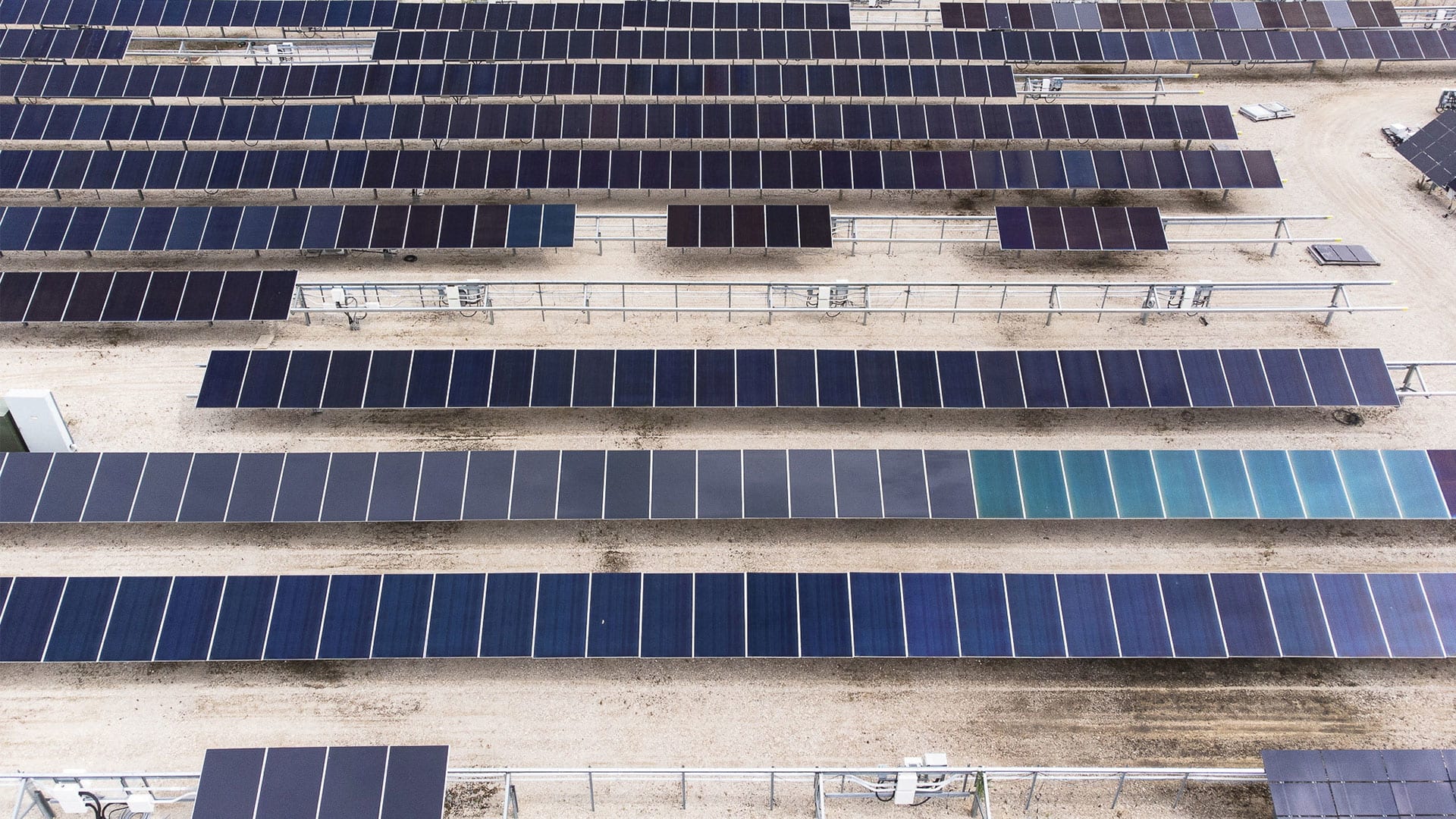3,521% Tariffs: The US Cracks Down On Southeast Asian Solar Panel Imports

Table of Contents
The Reason Behind the 3,521% Tariffs
The Department of Commerce initiated an investigation into allegations that Southeast Asian solar panel manufacturers were circumventing earlier anti-dumping and countervailing duties imposed on Chinese solar panels. This investigation led to the imposition of these substantial anti-circumvention tariffs. The core allegations against these Southeast Asian companies include:
- Circumvention of Existing Tariffs: Southeast Asian manufacturers were allegedly avoiding the tariffs on Chinese solar panels by shipping components to intermediary countries for assembly and then exporting the finished products to the US. This effectively masked the origin of the panels and allowed them to enter the US market at lower prices.
- Undercutting US Manufacturers: The investigation claimed that the influx of cheaper Southeast Asian solar panels, potentially originating from China, significantly undercut US solar manufacturers, harming their competitiveness and potentially jeopardizing domestic production.
- Focus on Specific Countries: The investigation specifically targeted solar panel imports from Cambodia, Malaysia, Thailand, and Vietnam, alleging that these countries served as key players in the alleged circumvention scheme. The impact of these allegations on the US solar industry is considerable, potentially boosting domestic production but also leading to increased costs for consumers. The use of anti-circumvention tariffs highlights the complexities of international trade and the challenges of enforcing trade laws in a globalized market. The interplay between Southeast Asian solar panel imports, Chinese solar panels, and the US solar industry is central to this complex issue.
Impact on the Solar Industry and Consumers
The 3,521% tariffs are expected to have a significant impact on the US solar industry and consumers, creating both opportunities and challenges:
Increased Solar Panel Prices
- Higher Costs for Consumers: The tariffs will almost certainly lead to significantly higher solar panel prices in the US. This increase will directly impact the cost of installing solar panels, making solar energy less affordable for residential and commercial consumers.
- Delays in Solar Projects: Increased costs could lead to delays or cancellations of solar energy projects, slowing down the growth of the US solar market. This is particularly true for large-scale projects where budget constraints are more significant.
- Ripple Effects Across the Supply Chain: The price increases won't be limited to just solar panels. The entire solar energy supply chain, from installers to financing companies, will feel the effects of these tariffs.
Supply Chain Disruptions
- Disruptions to Solar Panel Imports: The tariffs will drastically reduce the flow of solar panels from Southeast Asia into the US market. This disruption will exacerbate existing supply chain challenges and further constrain the availability of solar panels.
- Alternative Sourcing Options: The US will likely seek alternative sources for solar panels, potentially leading to increased reliance on other countries or a boost in domestic manufacturing. However, finding reliable and cost-effective alternatives will be a challenge.
- Effects on Existing and Future Projects: The disruption to the supply chain will impact both existing and planned solar energy projects, causing delays, cost overruns, and potential project cancellations.
Implications for the Renewable Energy Transition
- Slowing Solar Energy Adoption: The increased cost of solar panels due to these tariffs could significantly slow down the adoption of solar energy in the US, potentially hindering the nation's commitment to renewable energy and climate goals.
- Consequences for Meeting Climate Goals: The decreased uptake of solar energy could make it harder for the US to meet its climate change targets and reduce its carbon footprint. This creates a tension between trade policy and environmental policy.
- Geopolitical Ramifications: The tariffs could strain US relations with Southeast Asian countries, impacting broader geopolitical strategies and trade relationships within the region. This highlights the interconnectedness of trade policy, energy security, and international relations. The interplay between solar panel prices, solar energy projects, and the renewable energy transition is at the heart of this debate. The impact on the US solar market is profound and far-reaching.
International Reactions and Trade Disputes
The 3,521% tariffs have predictably drawn strong reactions from Southeast Asian governments. Several countries have expressed concerns and may consider retaliatory measures against US goods. The potential for escalation is high, leading to further trade disputes and harming the already strained global trade environment. The possibility of WTO challenges also looms large, with affected countries potentially contesting the legality of the tariffs under international trade law. The impact on international trade and trade disputes remains a crucial factor to consider. The role of the WTO in resolving this conflict will be critical. This situation underscores the complex dynamics of Southeast Asian economies and their interdependence with the global market.
Conclusion
The 3,521% tariffs on Southeast Asian solar panel imports represent a significant escalation in trade tensions and have far-reaching consequences for the US solar industry, consumers, and the global renewable energy landscape. The increased prices, supply chain disruptions, and potential trade conflicts cast a shadow on the future of solar energy adoption in the United States. Understanding the intricacies of this trade dispute is crucial for stakeholders across the solar energy sector. To stay informed about the latest developments and their potential impact on your business or household, continue to follow news and analysis related to these Southeast Asian solar panel imports and the implications of the 3,521% tariffs. Stay informed about the evolving situation regarding US solar tariffs and their impact on the renewable energy transition.

Featured Posts
-
 Iowa High School Track And Field Championships Results For May 22 25
May 30, 2025
Iowa High School Track And Field Championships Results For May 22 25
May 30, 2025 -
 Sony Music Brasil Fernando Cabral De Mello E O Novo Ceo
May 30, 2025
Sony Music Brasil Fernando Cabral De Mello E O Novo Ceo
May 30, 2025 -
 French Open Update Djokovics Strong Showing Gauff And Andreeva Advance
May 30, 2025
French Open Update Djokovics Strong Showing Gauff And Andreeva Advance
May 30, 2025 -
 Public Outcry Massive Petition Aims To Strip Jon Jones Of Ufc Title
May 30, 2025
Public Outcry Massive Petition Aims To Strip Jon Jones Of Ufc Title
May 30, 2025 -
 Laurent Jacobelli Analyse Arcelor Mittal Et La Russie 9 Mai 2025
May 30, 2025
Laurent Jacobelli Analyse Arcelor Mittal Et La Russie 9 Mai 2025
May 30, 2025
Latest Posts
-
 Boxing Rematch Munguias Improved Performance Secures Win Over Surace
May 31, 2025
Boxing Rematch Munguias Improved Performance Secures Win Over Surace
May 31, 2025 -
 Boxing Results Munguia Cruises To Victory In Rematch Against Surace
May 31, 2025
Boxing Results Munguia Cruises To Victory In Rematch Against Surace
May 31, 2025 -
 Munguias Positive Testosterone Test Surace Demands Win Overturned
May 31, 2025
Munguias Positive Testosterone Test Surace Demands Win Overturned
May 31, 2025 -
 Munguia Vs Surace Ii A Dominant Victory But Limited Improvement
May 31, 2025
Munguia Vs Surace Ii A Dominant Victory But Limited Improvement
May 31, 2025 -
 Jaime Munguia And The Vada A Detailed Examination Of The Positive Test
May 31, 2025
Jaime Munguia And The Vada A Detailed Examination Of The Positive Test
May 31, 2025
